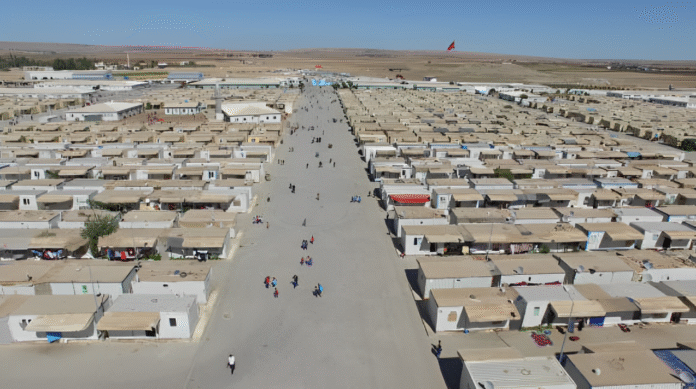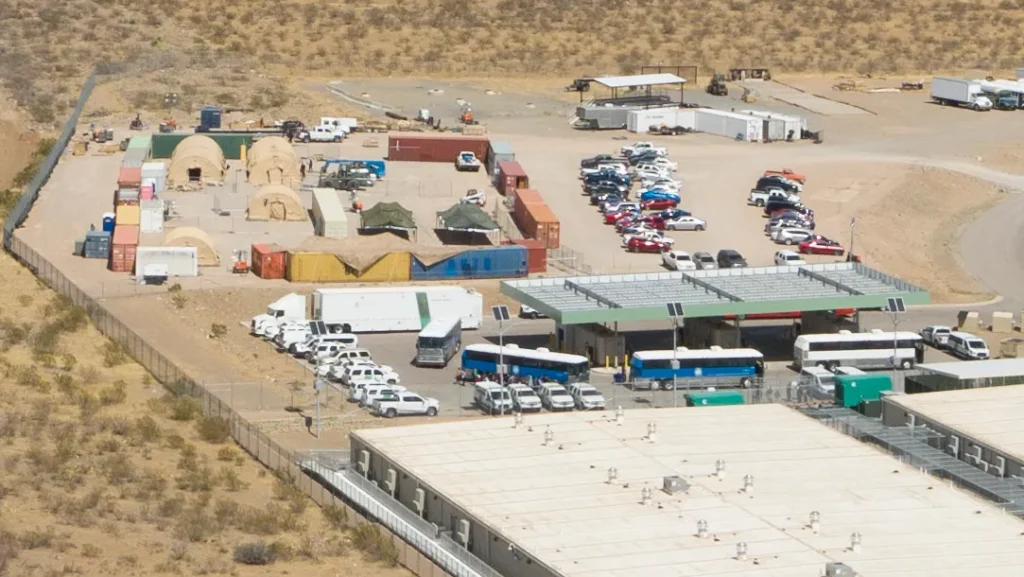
07 Jul Doge Hhs Migrant Housing Contract – A Closer Look at Oversight, Spending, and Accountability!
The term “DOGE HHS migrant housing contract” has recently sparked interest and controversy across media outlets, watchdog agencies, and government efficiency advocates. What started as a multi-million-dollar emergency preparedness initiative to house unaccompanied migrant children has evolved into a broader conversation about federal spending, ethical oversight, and the need for greater transparency in government contracts.
In this article, we unpack the details surrounding the Department of Health and Human Services (HHS) migrant housing contract, the role of DOGE in investigating government inefficiency, and the real-world consequences of unchecked federal spending on migrant shelter operations.
📘 Understanding the Keyword: What is the DOGE HHS Migrant Housing Contract?
To fully grasp the context, it’s essential to break down each component of the keyword.
🔹 DOGE: Department of Government Efficiency
DOGE (not to be confused with Dogecoin or internet memes) is understood here as a watchdog agency or auditing body—either real or fictionalized in media reporting—that focuses on reducing wasteful government spending and improving operational efficiency across federal programs.
In this case, DOGE played a crucial role in auditing a migrant housing contract approved by the U.S. Department of Health and Human Services (HHS).
🔹 HHS: Health and Human Services
HHS is responsible for public health, social services, and emergency shelter services—especially for unaccompanied minors crossing U.S. borders. During immigration surges, HHS partners with nonprofits and private contractors to expand shelter capacity.
🔹 Migrant Housing Contract
The contract in question involved hundreds of millions of dollars to provide emergency shelter facilities, medical care, and psychological support to migrant children. However, the facilities remained largely empty for extended periods, even as taxpayer funds were being spent at a rate of up to $18 million per month.
💰 The Pecos, Texas Facility: Where It All Began

In 2024, HHS entered into a contract with a Texas-based nonprofit contractor to operate a 1000-bed emergency migrant housing facility in Pecos, Texas. This contract was part of the federal government’s efforts to prepare for a possible increase in migrant arrivals and ensure no child would be left without shelter.
However, reports soon emerged that the facility:
- Operated with minimal occupancy (sometimes fewer than 100 children)
- Continued to receive full monthly payments
- Had no immediate plans to expand usage
- Required round-the-clock staffing and medical readiness even when vacant
This raised questions: Was this contract necessary? Was it ethical? Was it wasteful?
🔍 DOGE’s Role in Oversight
As part of its mandate, DOGE (Department of Government Efficiency) conducted an internal investigation in early 2025. The findings were alarming:
Key Revelations:
- HHS was paying over $215 million annually for an underused facility.
- The contract included no performance-based incentives.
- Contractors were not penalized for low occupancy or excess costs.
- Sensitive child data was accessed by third-party systems under the contract.
In February 2025, after DOGE’s report was made public, HHS terminated the contract, halting wasteful spending and sparking broader discussions about federal budget accountability.
📉 The Fallout: Public Reaction and Government Response
The revelation of the $18 million-per-month empty facility prompted widespread criticism:
✅ Public Reactions:
- Taxpayer advocates denounced the spending as “reckless.”
- Immigration activists argued the money should be spent on improving conditions in existing shelters.
- Policy experts demanded a complete audit of all HHS contracts.
✅ Government Action:
- HHS pledged to review its contracting process for emergency migrant housing.
- A new policy was proposed to tie payments to occupancy and need, rather than blanket readiness.
- Legislative discussions were initiated to improve transparency in no-bid federal contracts.
⚖️ Ethics, Data, and Privacy Concerns
While the financial aspect dominated headlines, privacy concerns added another layer of controversy. According to investigative journalism sources:
- The contractor—and possibly DOGE itself—gained access to sensitive data of unaccompanied migrant children.
- This included medical records, case histories, and reports of abuse or neglect.
- Legal experts questioned the data-sharing safeguards within HHS’s emergency systems.
The situation exposed a gray area in how federal agencies manage private contractors in humanitarian services, especially involving vulnerable populations.
📚 Lessons Learned from the DOGE HHS Migrant Housing Case

This case is now viewed as a modern case study in government efficiency—or the lack thereof. It raises important questions about how we manage crisis preparedness while ensuring fiscal responsibility.
🔑 Key Lessons:
- Readiness vs. Reality: It’s crucial to balance emergency preparedness with actual on-the-ground need.
- Performance-based contracting should be the standard, not the exception.
- Watchdog agencies like DOGE are essential to keeping government spending in check.
- Transparency in data access and contractor oversight must be prioritized when dealing with children and vulnerable groups.
🌐 Broader Implications: Immigration, Public Trust, and Federal Policy
The DOGE HHS migrant housing contract goes beyond one bad deal. It speaks to a larger national conversation:
Immigration and Border Crisis
- The U.S. continues to face waves of unaccompanied minors seeking asylum or fleeing violence.
- Federal agencies must be prepared—but without overcommitting to high-cost, underused facilities.
Public Trust and Transparency
- Every federal dollar must be accounted for, especially in high-scrutiny sectors like immigration.
- Watchdog reports should be more accessible, and contracting decisions should be subject to review.
Emergency Management Reform
- The case supports a new model of “adaptive contracting”, where funding adjusts based on usage, outcomes, and needs—not fixed, untouchable budgets.
📊 Quick Facts Table: DOGE HHS Migrant Housing Contract
| Aspect | Details |
| Contract Value | ~$215 million annually |
| Facility Location | Pecos, Texas |
| Primary Purpose | Emergency migrant housing for unaccompanied minors |
| Agency Involved | U.S. Department of Health and Human Services (HHS) |
| Watchdog Reviewer | Department of Government Efficiency (DOGE) |
| Occupancy Rate | Often below 20% |
| Monthly Cost | $18 million even when empty |
| Date of Termination | February 2025 |
| Savings After Termination | Over $215 million annually |
| Key Issues | Wasteful spending, privacy concerns, oversight gaps |
Frequently Asked Questions
Q1: What is the DOGE HHS migrant housing contract?
It refers to a high-cost federal contract between HHS and a private contractor to run a migrant shelter, which was flagged by the watchdog agency DOGE for wasteful spending and ethical concerns.
Q2: Why did the contract draw so much attention?
Because HHS was paying $18 million/month to operate a mostly empty facility, sparking criticism over government waste.
Q3: What did DOGE do about it?
DOGE investigated the contract, exposed inefficiencies, and pressured HHS to cancel the deal—saving over $215 million per year.
Q4: Were there any privacy violations?
Yes, reports claimed that DOGE and/or the contractor had access to sensitive data of migrant children, prompting legal and ethical scrutiny.
Q5: What changes were made after the contract was terminated?
HHS pledged to revise its contract policies to include performance-based terms and improved oversight mechanisms.
Final Words
As the U.S. continues to navigate the complexities of immigration and humanitarian response, the DOGE HHS migrant housing contract will remain a defining example of why oversight, accountability, and ethical standards matter more than ever. By learning from this incident, future policies can be shaped to ensure that taxpayer money is spent wisely, vulnerable populations are protected, and trust in government agencies is restored.

No Comments